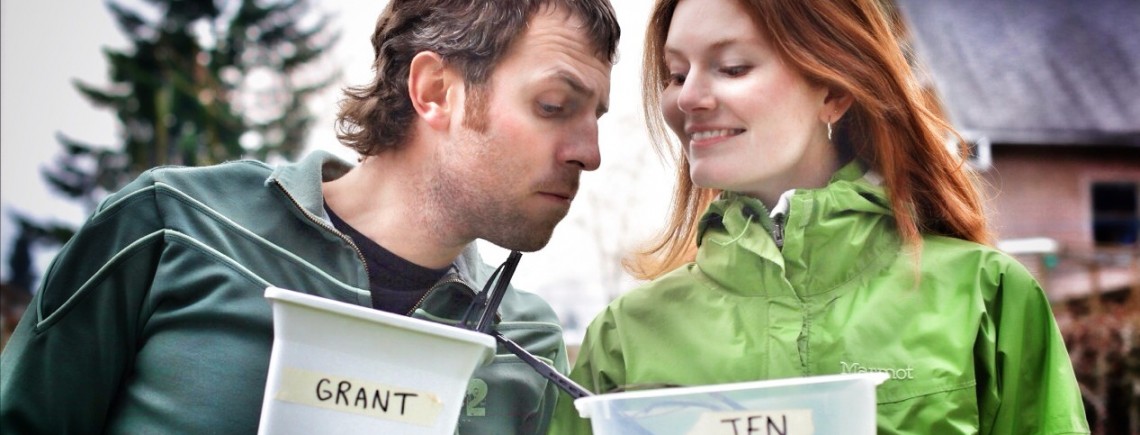The Clean Bin Project
The Clean Bin Project is a documentary film about Jen and Grant, a fun-loving, unapologetically competitive couple, who embark on a yearlong contest to reduce their garbage output. Their rules are simple:
1) No buying stuff.
2) No producing garbage.
3) Take responsibility for your waste.
In a nutshell, this film gets our two thumbs up because it’s not preachy. As Jen and Grant get more and more educated on the topic of waste-free living, the viewer gets to learn along with them; and, best of all, they are quite charming. In one scene, Grant ends up having a kite-boarding accident and the result, which could have been tragic, is a hilarious example of how competitive he truly is. Oh, and without giving it away too much, we just howled at the ‘white pants’ episode!
The couple’s jovial antics are a great contrast to documentary photographer Chris Jordan, whose work focuses on human consumption and waste. In 2009, he began a photographic series on Midway Atoll, a remote cluster of islands more than 2000 miles from the nearest continent. There he found shocking evidence of our mass consumption, inside the stomachs of thousands of dead baby albatrosses. The nesting chicks are fed lethal quantities of plastic by their parents, who mistake the floating trash for food as they forage over the polluted Pacific Ocean. The images are disturbing – but not because they are gruesome – it’s because the images stop us in our tracks; and you can’t help but ask yourself, “Is that bottle cap from a pop I drank?” It’s a great wake up call, or a louder call to action.
After seeing Jordan’s images and watching The Clean Bin Project, you might possibly walk away asking yourself – or even daring yourself – to try and live completely waste free; but Brian Burke, the resident Recycling Guru at Quayside Co-housing in North Vancouver, would suggest you not go extreme. His tip: “the number one thing is to do one more thing”. Here are Jen’s and Grant’s top ten tips for reducing your garbage output (maybe you can add at least one more thing to your green living arsenal):
1. Stop using plastic bags.
2. Set up your recycling in a convenient place.
3. Compost!
4. Recycle everything you can!
5. Give up take-out containers.
6. Check the package BEFORE you buy It.
7. Buy secondhand.
8. DIY (do it yourself) i.e.: laundry soap, bread.
9. Get educated.
10. Let businesses know how you feel. Leave your packaging at the till or mail it back to the manufacturer. Writing a letter or calling a company goes a long way.



